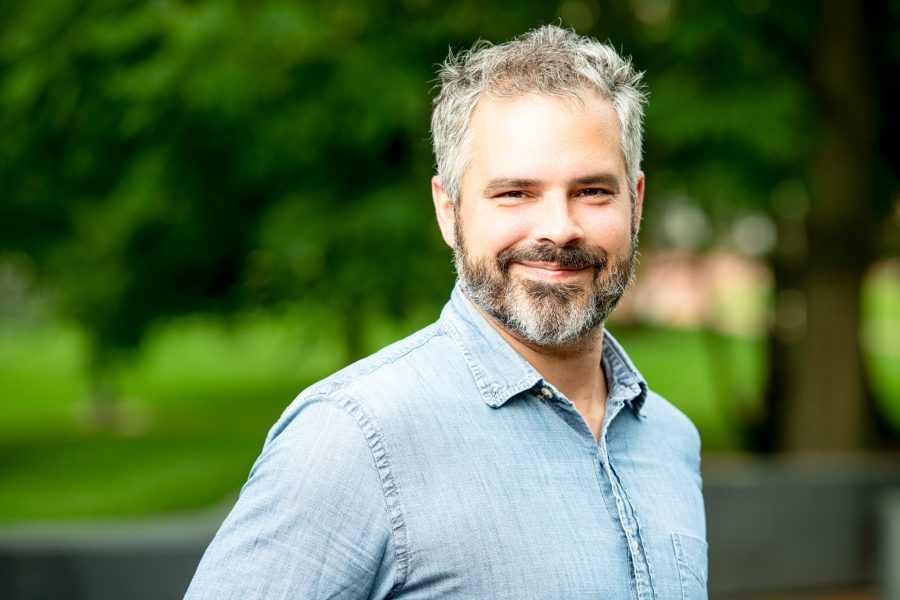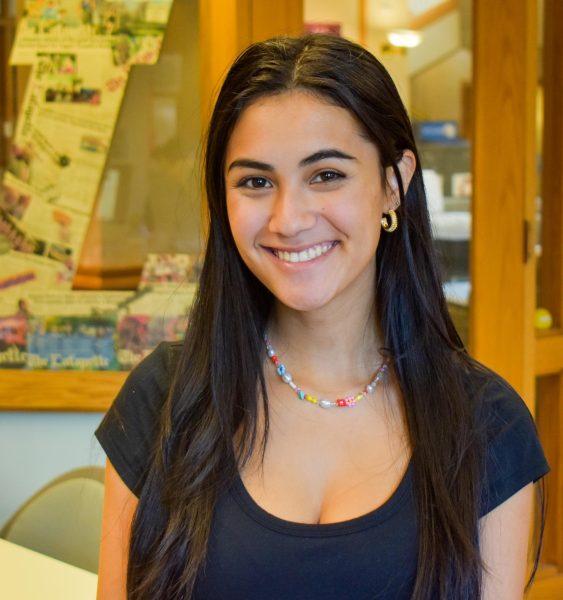Twenty-one new faculty members, made up of both tenure-track and visiting professors, have joined the Lafayette community this academic year. Three of them spoke with The Lafayette about their own research projects and thoughts on the college so far.
Abbey Mann, a psychology professor who specializes in health and gender and sexuality psychology, noted that her work is done with the intention of largely helping others and developing communities. She has previously taught at Vanderbilt and East North Caroline State University.
“I’m a community psychologist by training, which means I work with community groups. I go to groups of people and I ask them what they are interested in, what they need, and then I use my research tools to help out, to kind of improve things,” Mann said.
Mann said that her favorite part of her research is being able to learn from the people with which she interacts, noting that their lived experiences give them large insight that she will never be able to get.
“I really like being able to actually see change happen, and I like learning from the experts–the people in communities,” Mann said. “I enjoy that I’m not the expert when I walk into the room, they are the exper and then I get to actually talk to real people and make small changes all the time.”
Speaking about her time so far at Lafayette, Mann said that she has loved how passionate and connected Lafayette students are within their community and regarding their interests. She said that this made the classroom environment much more dynamic and allowed for students to make relationships between the material and outside content.
“It’s been great having so many interested students who have interests that they’re bringing into the classroom. Especially in my Psychology of Gender class, people are coming with all kinds of different perspectives and backgrounds, and I love that,” Mann said. “I think it’s just great to have so many interested, engaged students who have lively discussions and come up with great ideas.”
Mann will be speaking about her research on healthcare in Appalachia on Oct. 14 over Zoom.
Another new professor to the Lafayette community is Henry Hallock, a behavioral neuroscientist who did research at the Lieber Institute at John Hopkins University. Hallock noted that his interest in neuroscience began when he realized that he could answer theoretical questions with psychology.
“The cool thing about neuroscience was that I was really into philosophy so I liked asking philosophical questions,” Hallock said. “With neuroscience, it kind of felt like you could do experiments on some of those questions and actually figure out some concrete answers.”
Hallock’s past research consisted of figuring out which genes are responsible for brain function in neuropsychiatric disorders. He said that he hopes to continue this research here at Lafayette. Hallock further expressed his excitement over being at a smaller school, adding that the intimate atmosphere provides great opportunities for connections.
“Being back at a smaller place where I feel like I can get to know everybody and be more a part of a community has been really awesome,” Hallock said.
Katie Storey, a mathematics professor, is similarly engaged with health issues. While she began her career as a theoretical mathematician, she shifted to applied mathematics in graduate school, where she began studying tumor growth and modeling them mathematically.
“I pivoted to more applied math and talked to a professor who did modeling of cancer. That really interested me, so I started reading papers about it and then started working on projects with her and that was what I then found I really enjoyed and wanted to keep doing in the future,” Storey said.
She added that she was happy to see the eagerness of Lafayette students and their dedication to both their studies and their peers.
“I was excited by how enthusiastic [the students were] to also be back in the classroom, especially working really well together in groups because I’ll split up my class time to have some group work time and I’ve found that students work really well together here,” Storey said. “Here there’s sort of this sense of camaraderie.”






















































































































